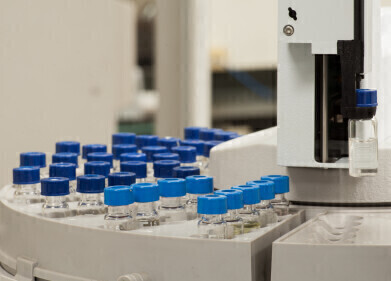GC, MDGC
Protein linked to the spread of breast cancer
Dec 09 2011
Scientists have used quantitative analysis processes to investigate the invasion- and metastasis-related genes in breast cancer cells in vitro and in vivo.
In a study by researchers from the Children's Hospital of Soochow University, China, the team noted that when breast cancer treatment fails, it is often as a result of lymph node metastasis and invasion of neighbouring organs.
The investigative report, published by the Journal of Translational Medicine, noted that two-dimensional liquid phase chromatographic fractionation was used to analyse two breast cancer cell lines, one with high and the other with low metastatic potential.
Scientists found that high ATP synthase expression levels strongly correlated with large tumour size, poor tumour differentiation and advanced tumour stages.
The team suggested that the over expression of ATP synthase alpha-subunit could be involved in the progression and spread of breast cancer.
As a result, the protein could be used in the future as a biomarker for diagnosis, prognosis and a therapeutic target for breast cancer, as well as aiding the understanding of the molecular mechanism of tumour metastasis.
Posted by Ben Evans
Digital Edition
Chromatography Today - Buyers' Guide 2022
October 2023
In This Edition Modern & Practical Applications - Accelerating ADC Development with Mass Spectrometry - Implementing High-Resolution Ion Mobility into Peptide Mapping Workflows Chromatogr...
View all digital editions
Events
Jan 20 2025 Amsterdam, Netherlands
Feb 03 2025 Dubai, UAE
Feb 05 2025 Guangzhou, China
Mar 01 2025 Boston, MA, USA
Mar 04 2025 Berlin, Germany












